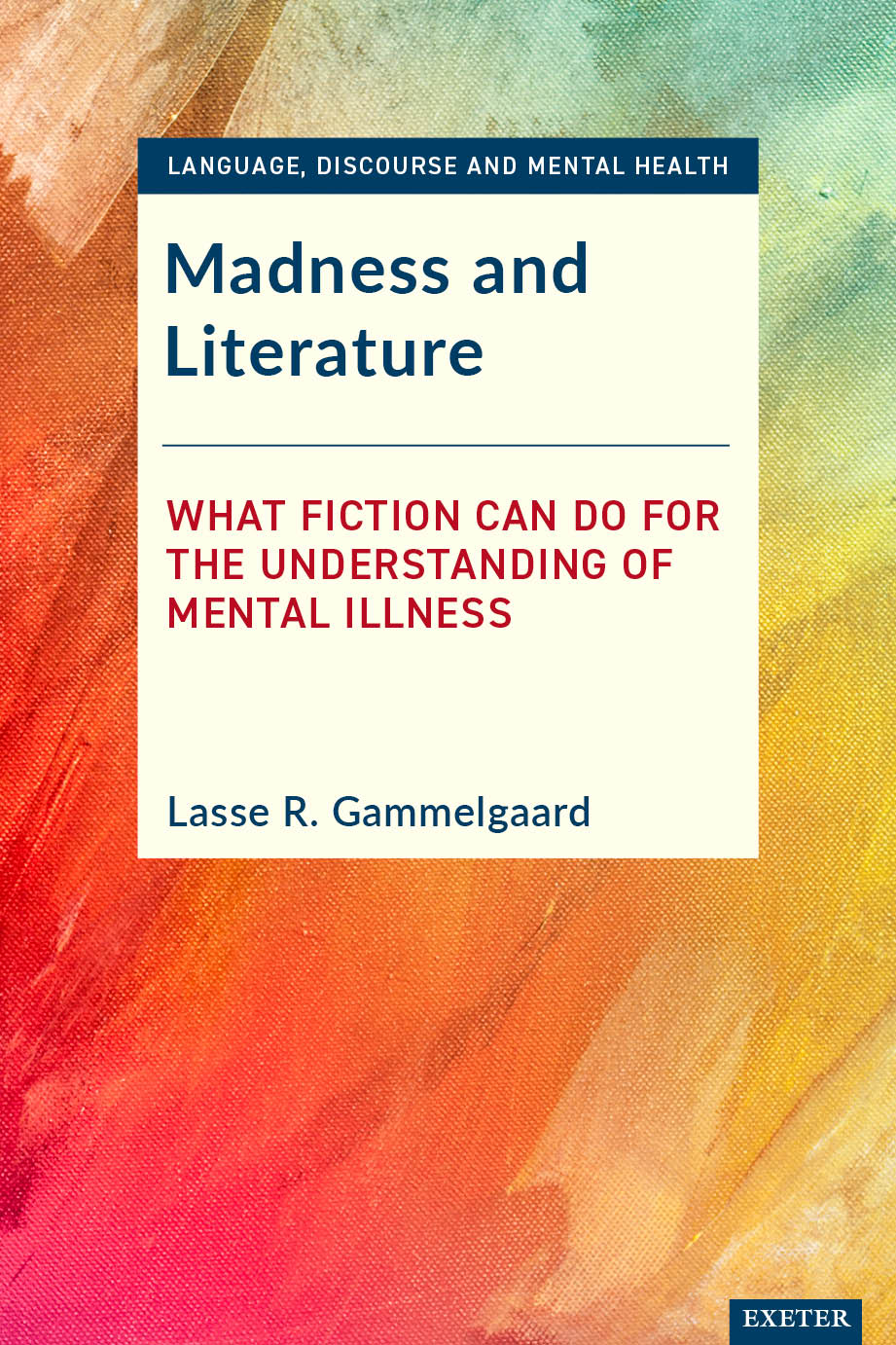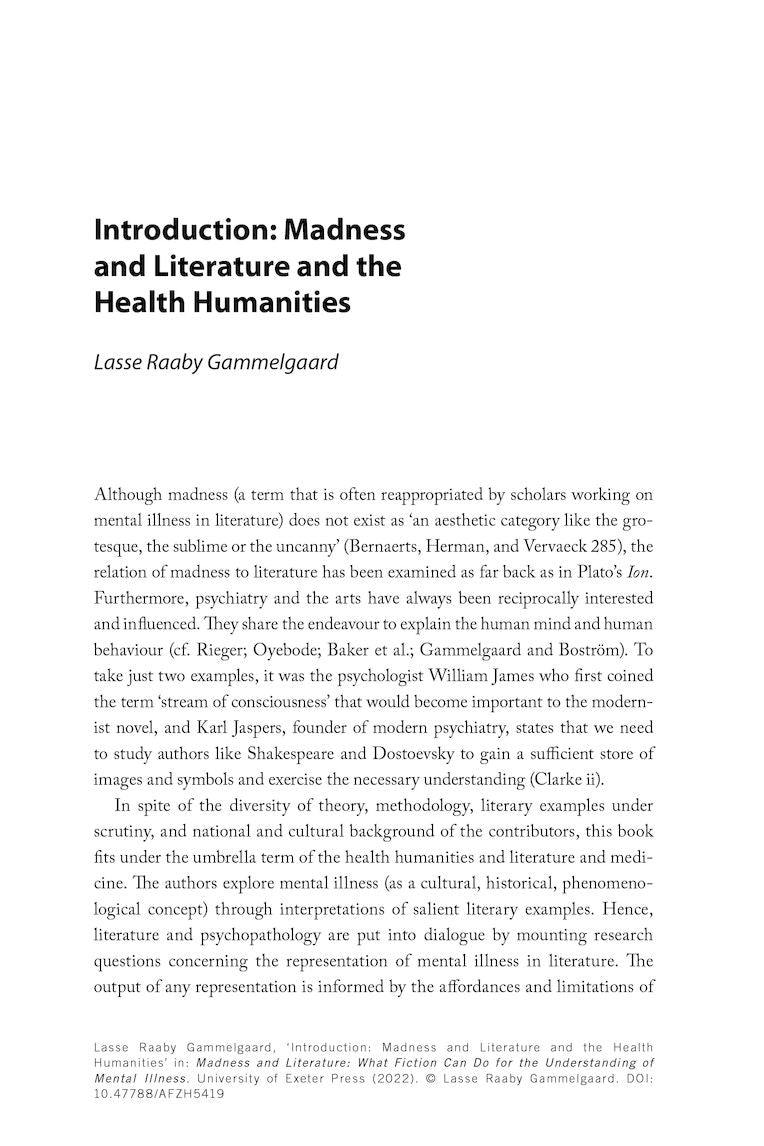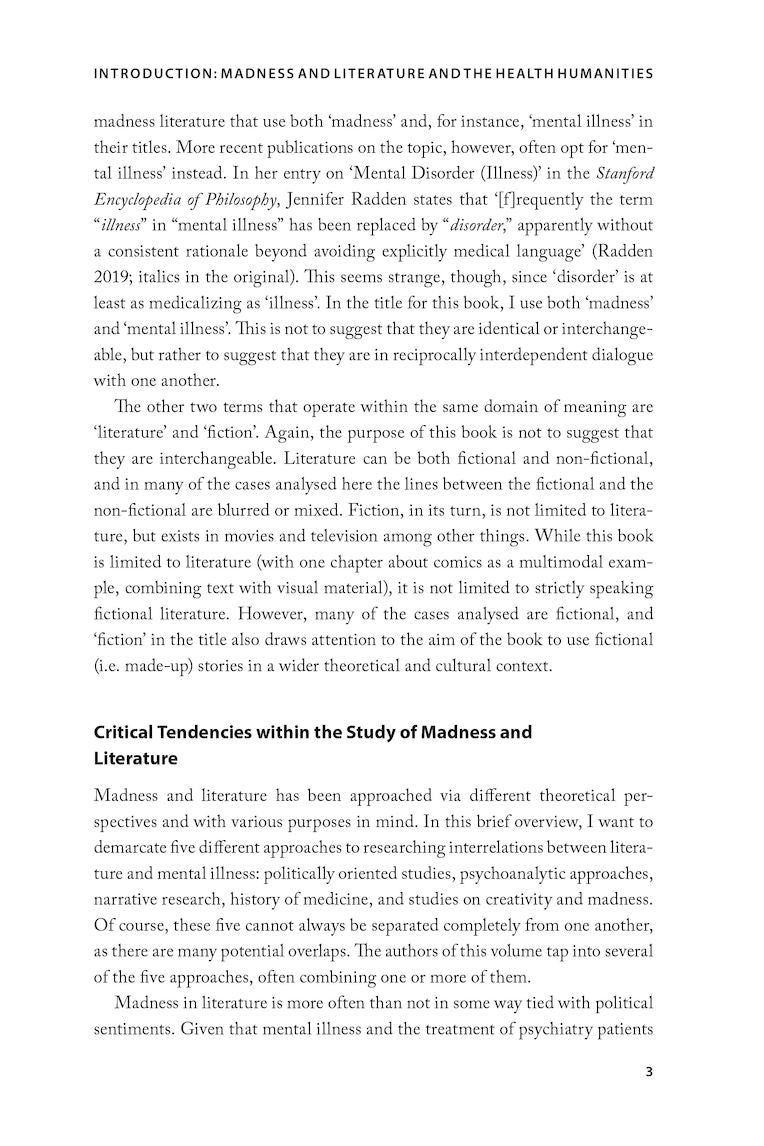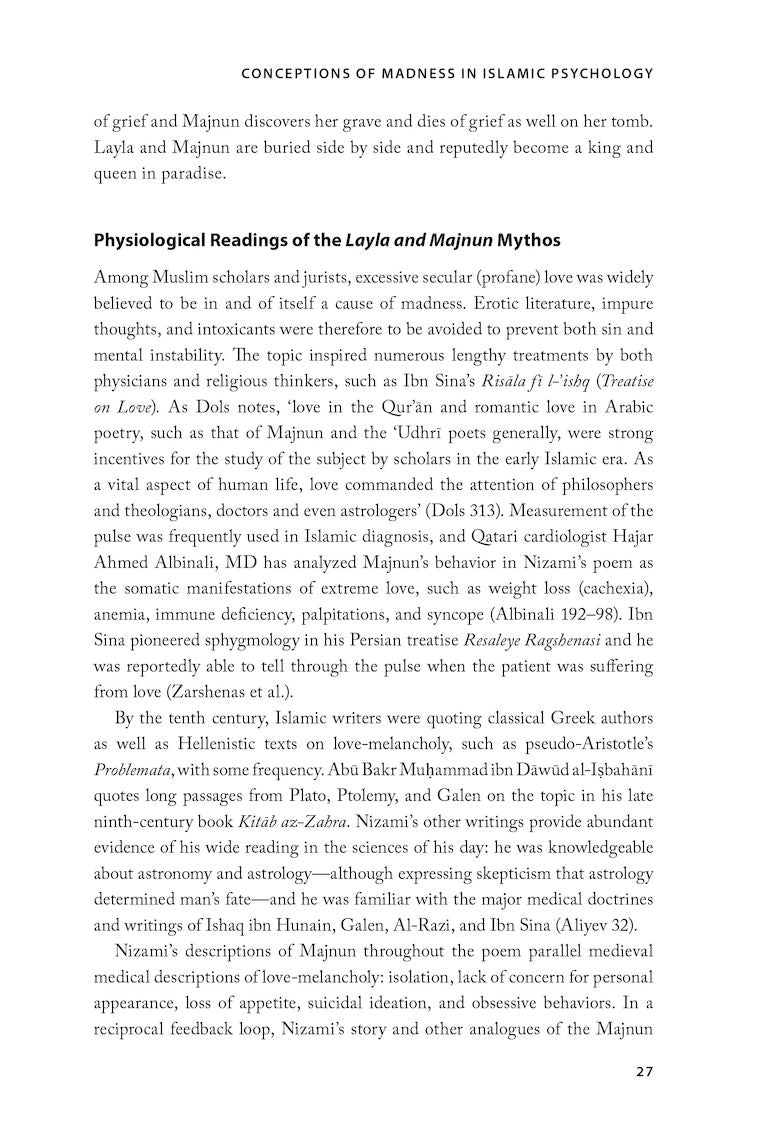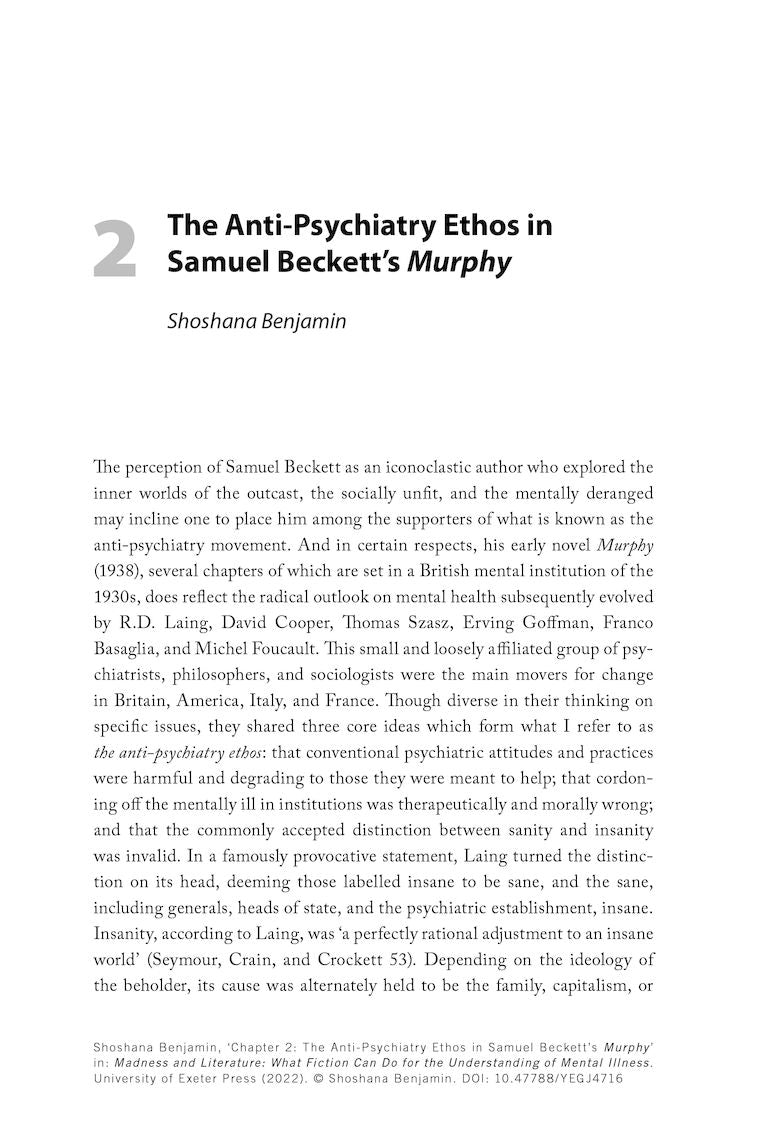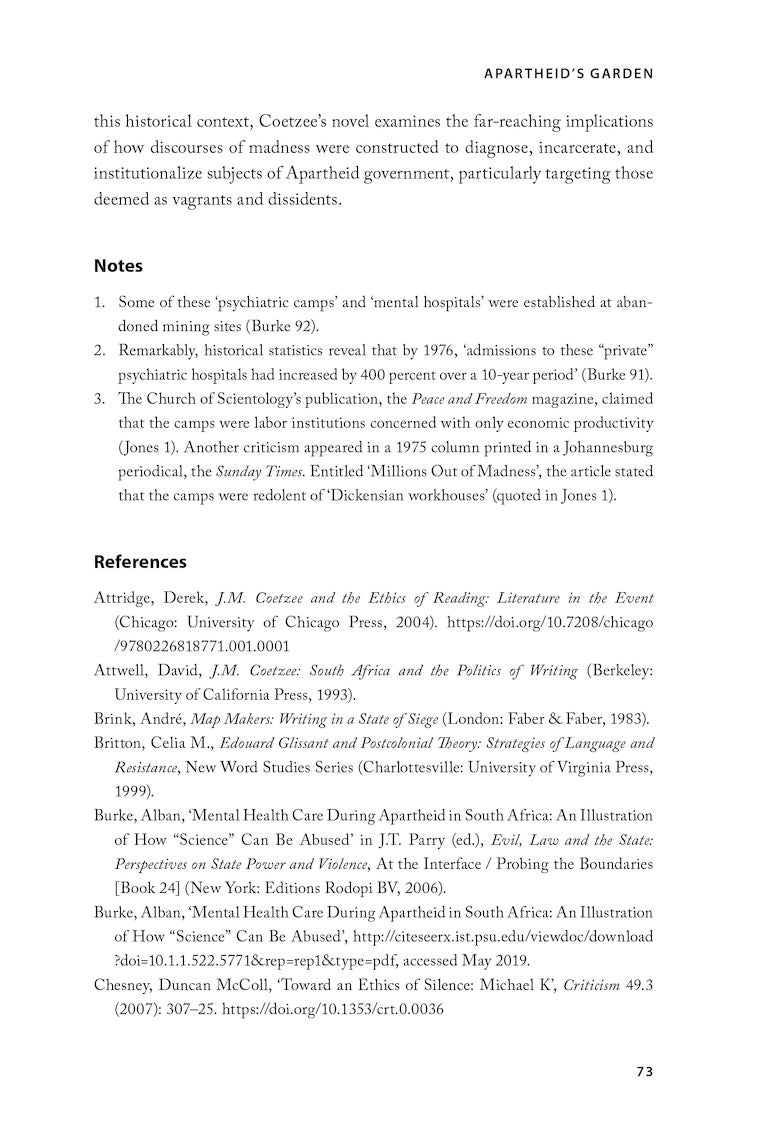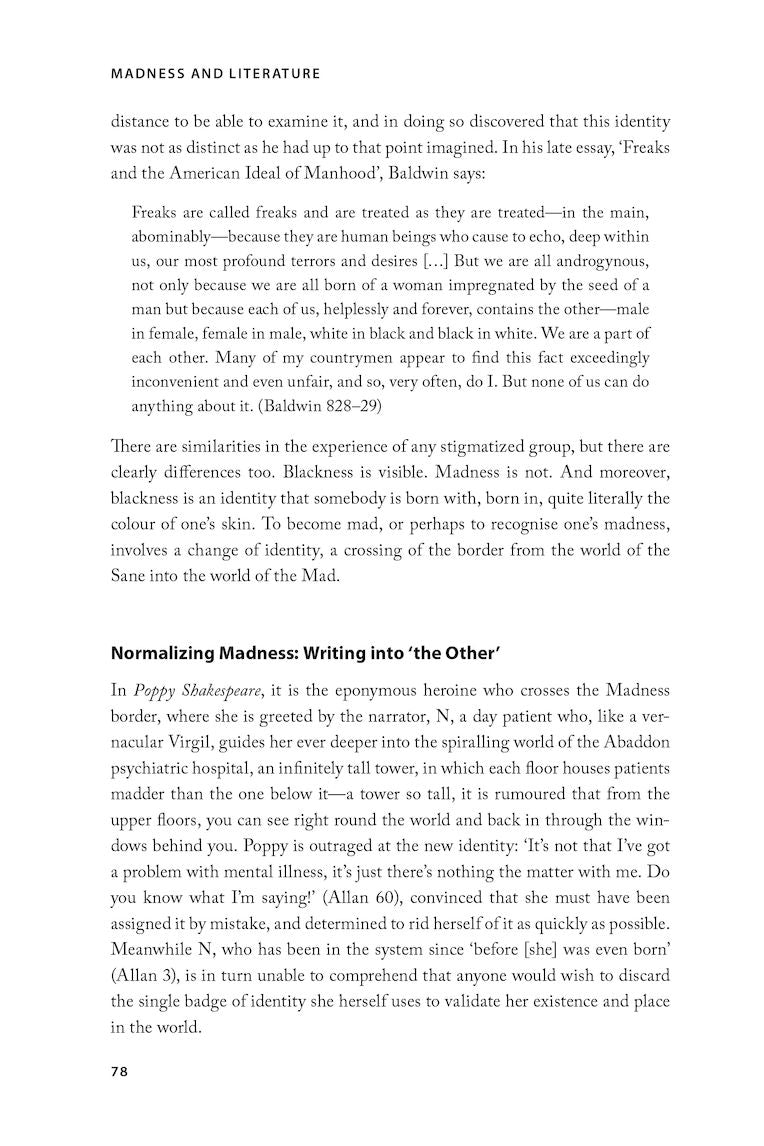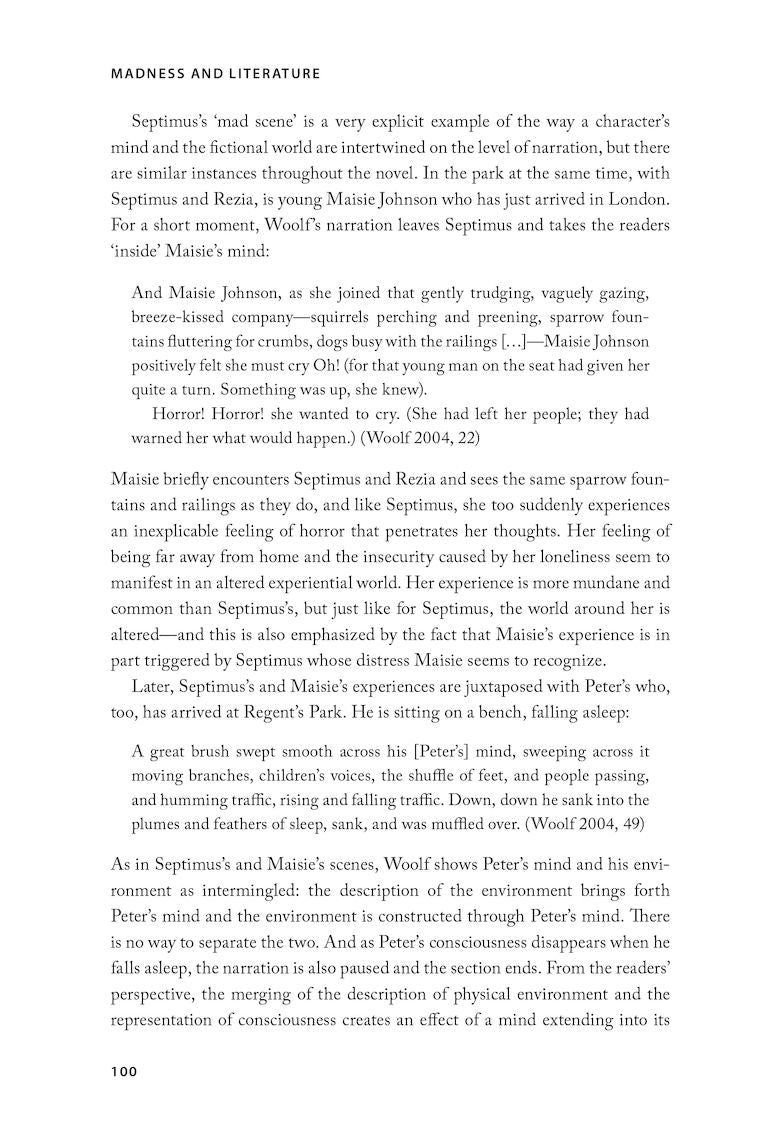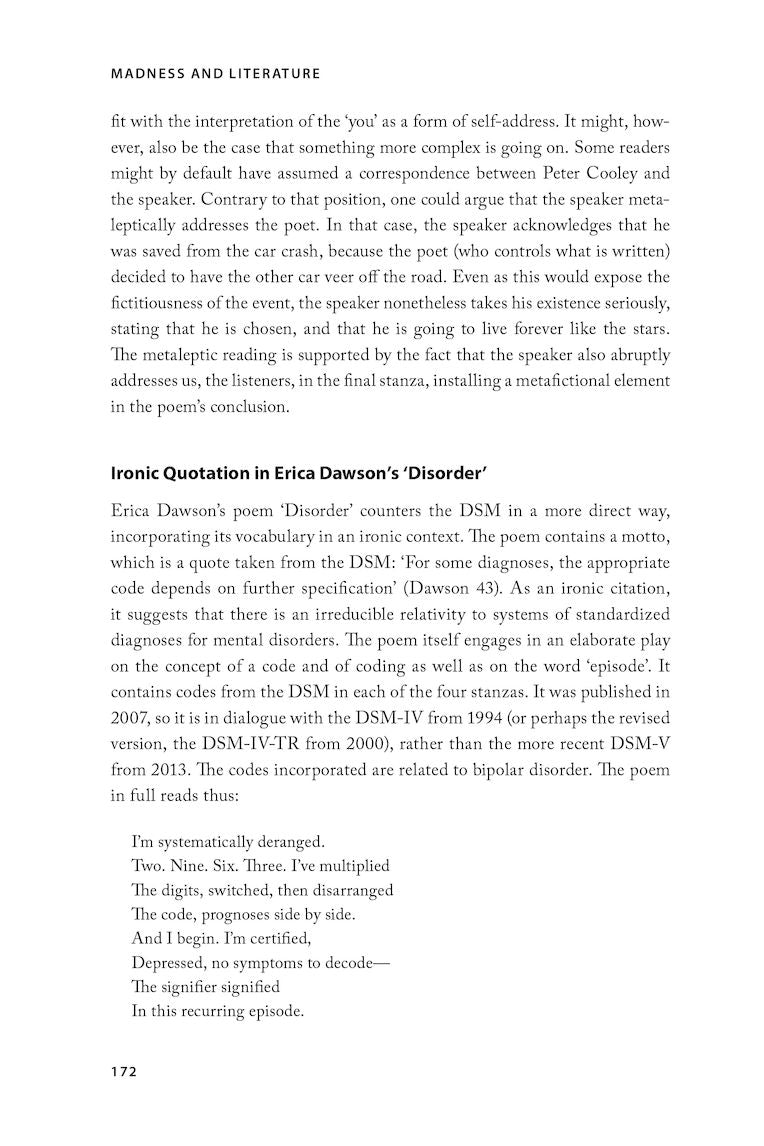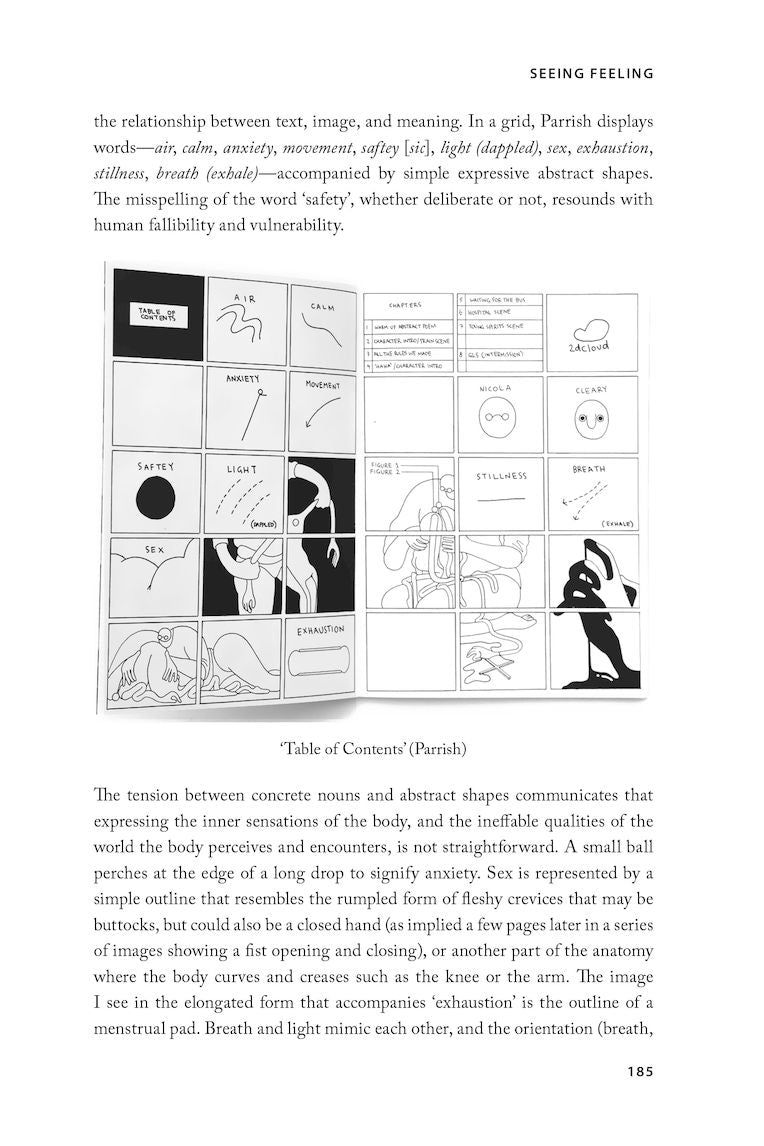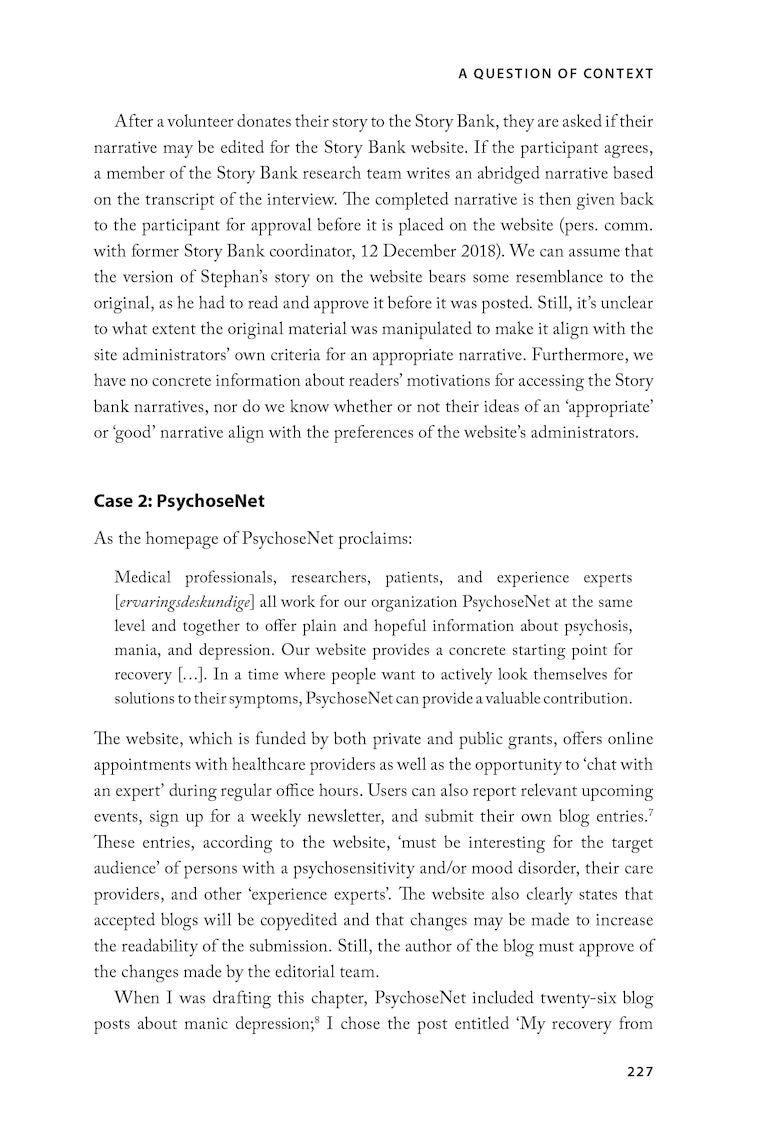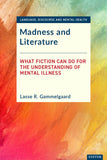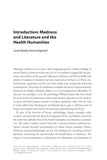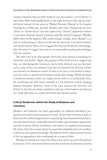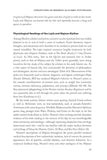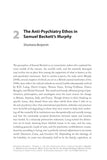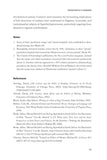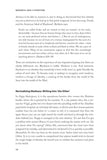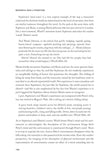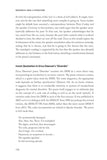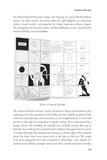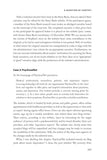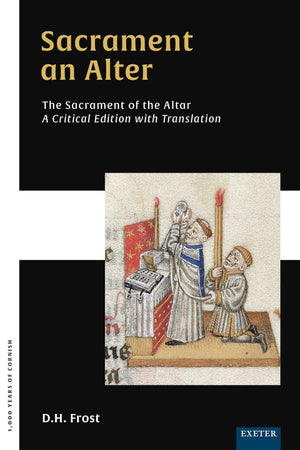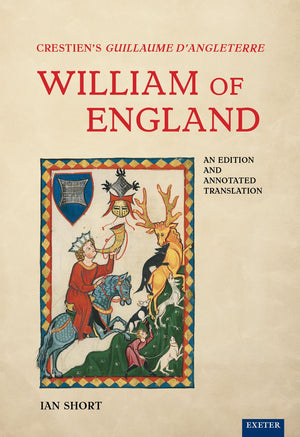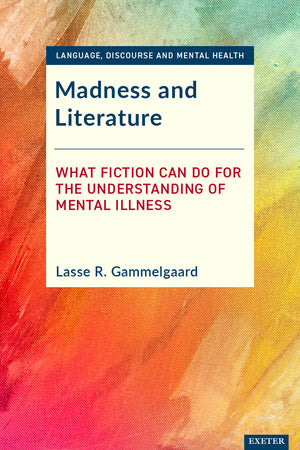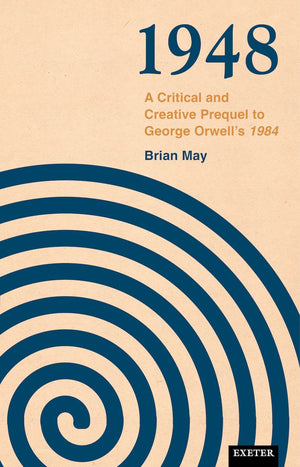University of Exeter Press
Madness and Literature
What Fiction Can Do for the Understanding of Mental Illness
Couldn't load pickup availability
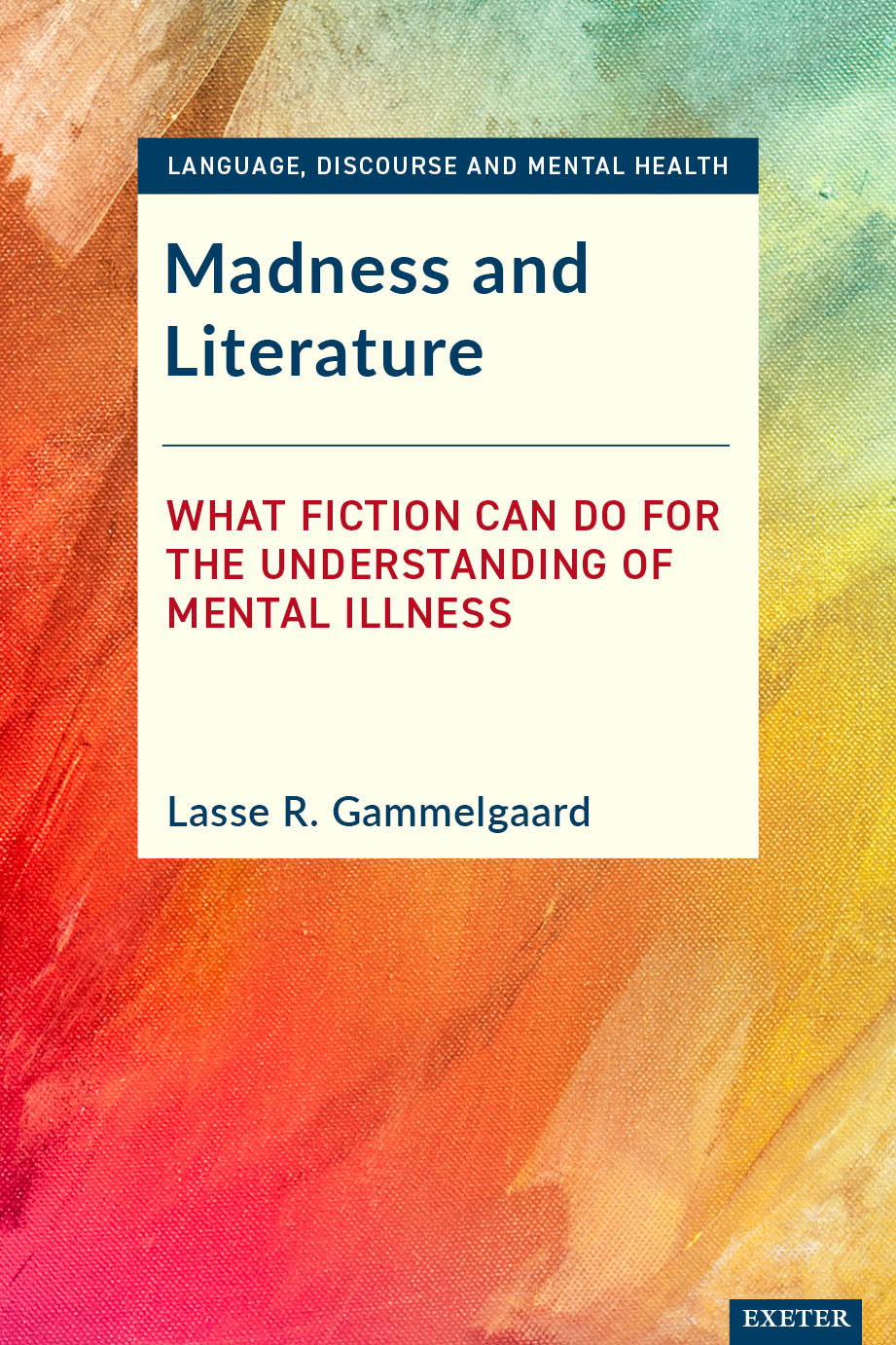
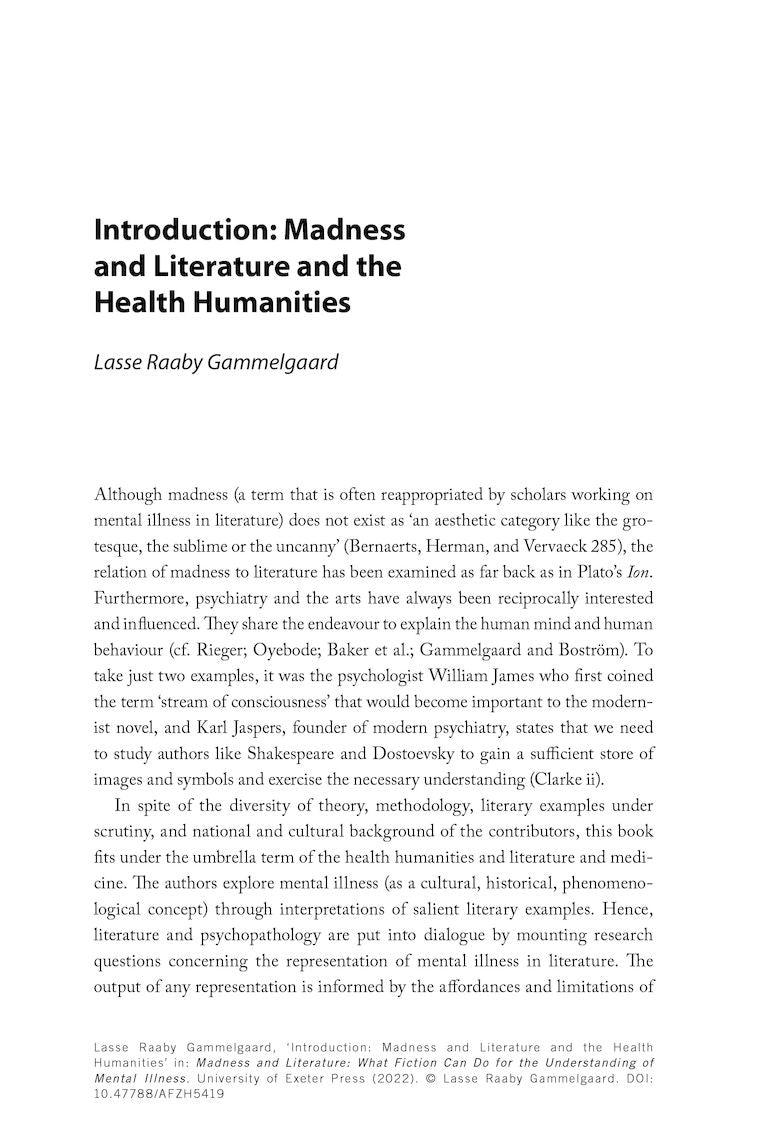
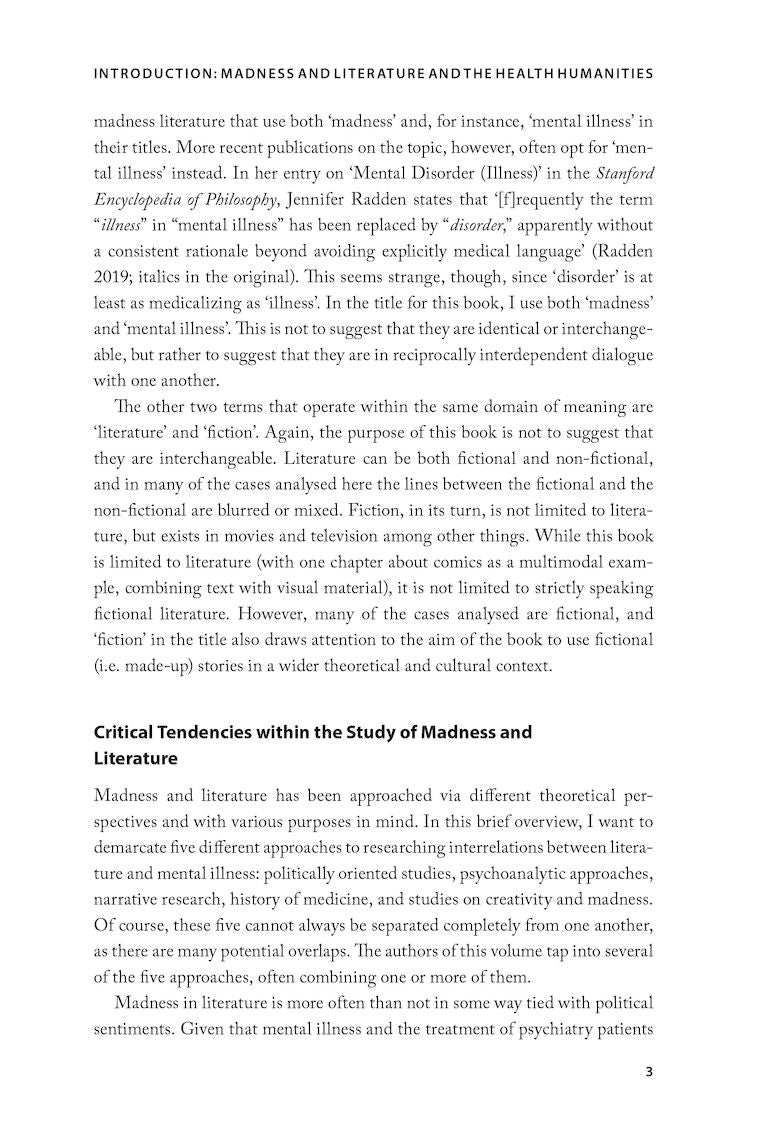
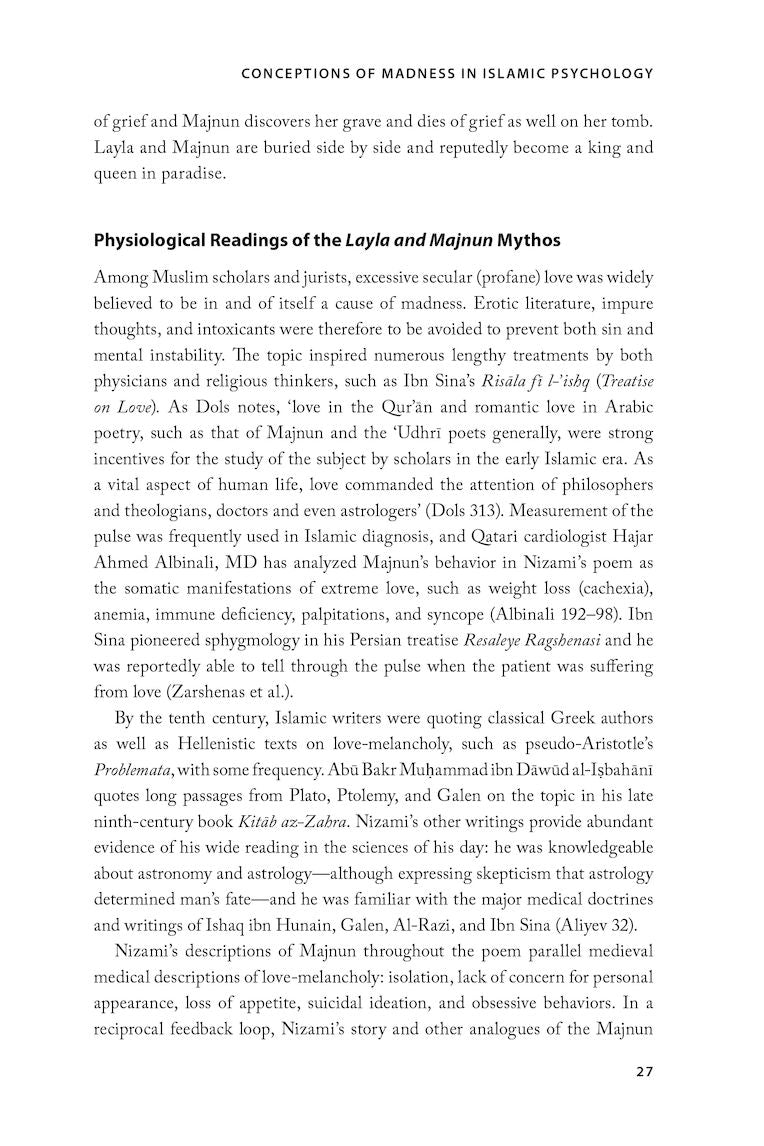
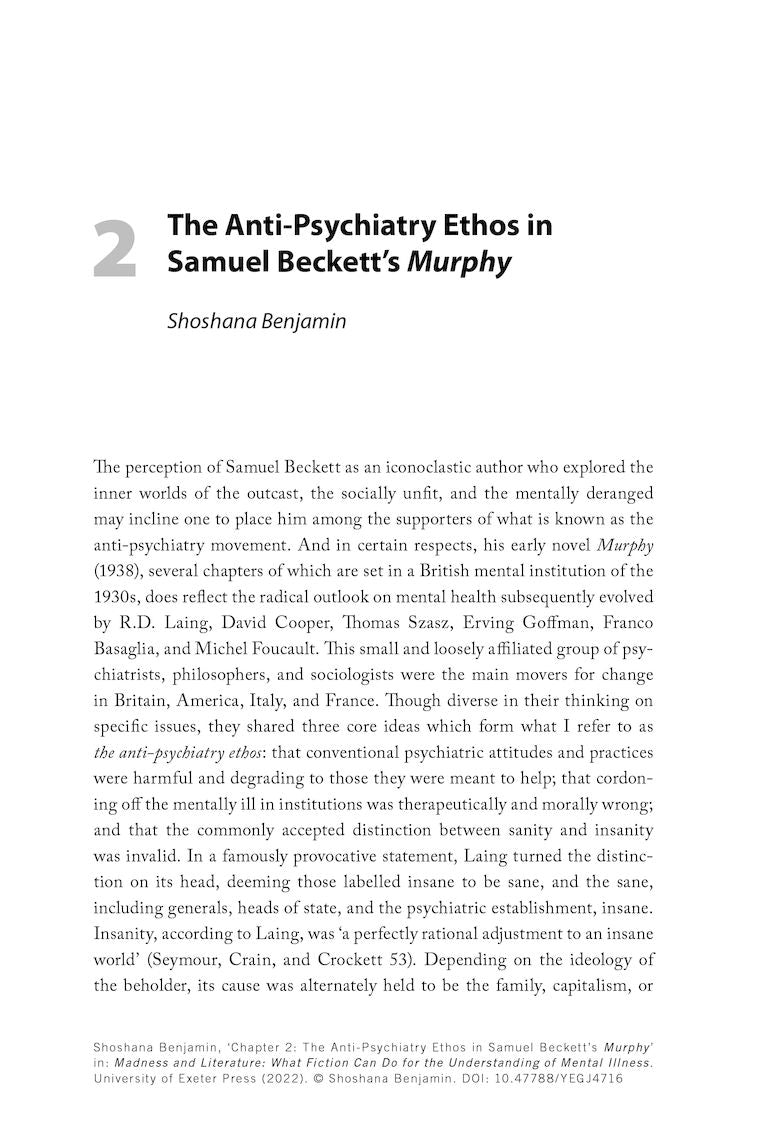
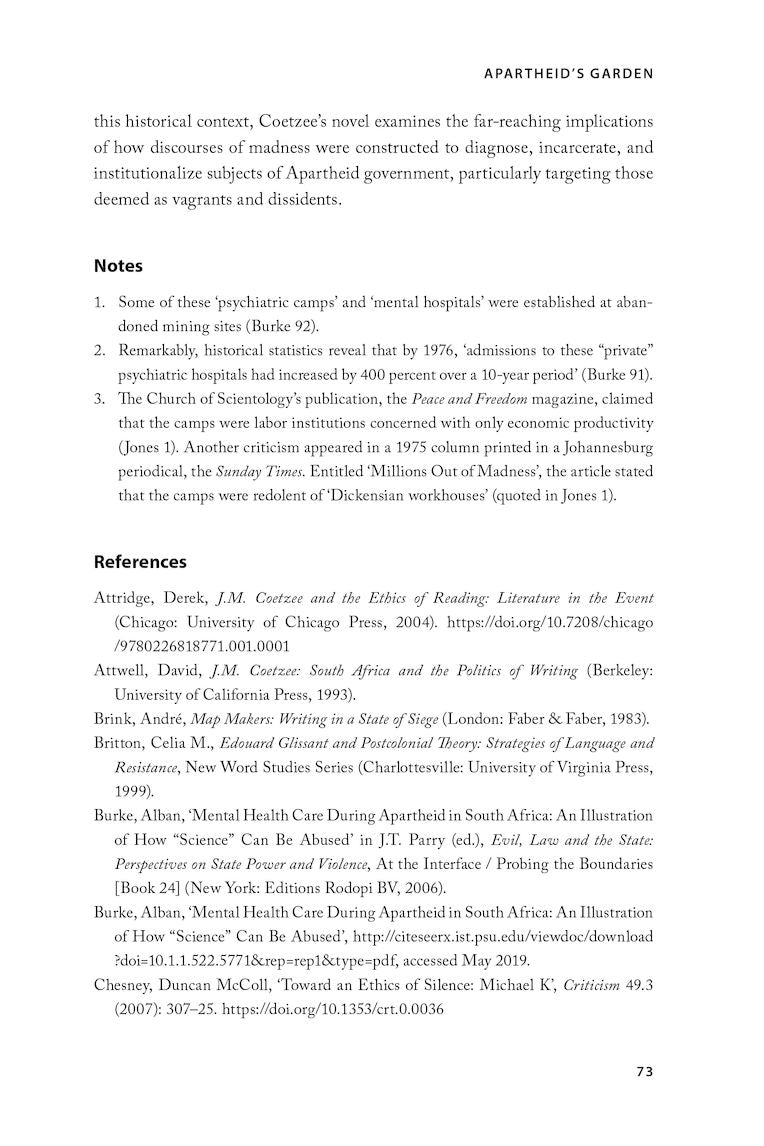
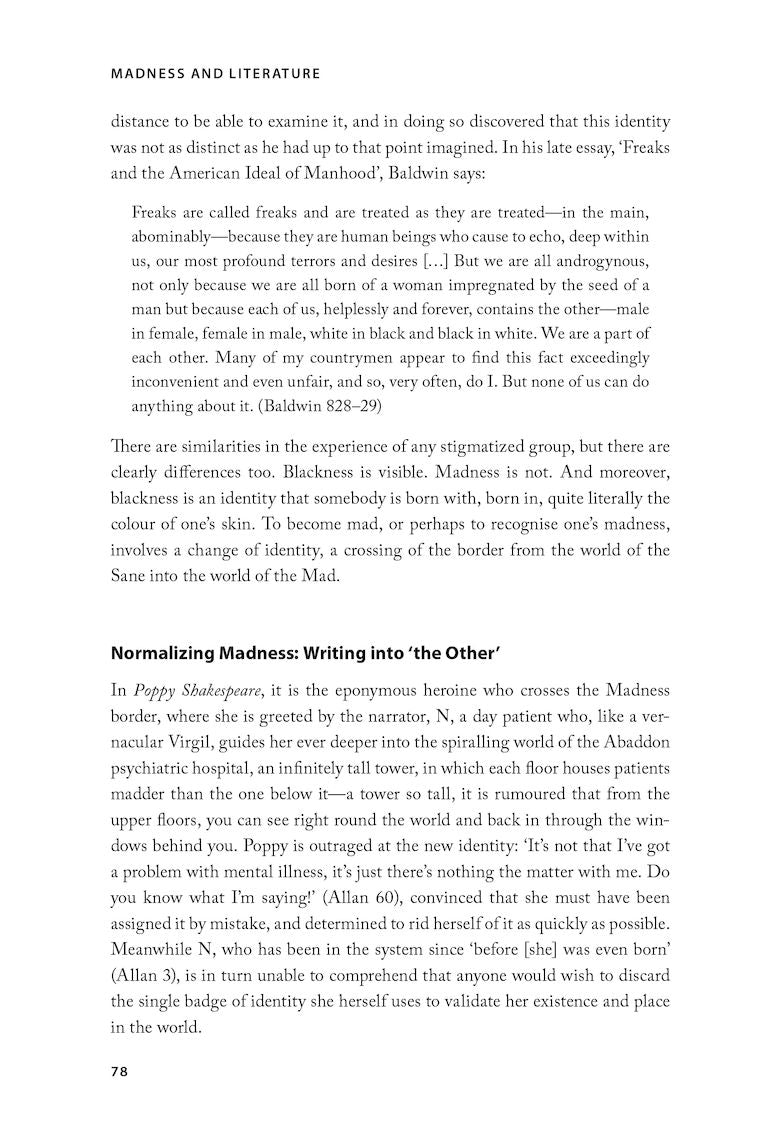
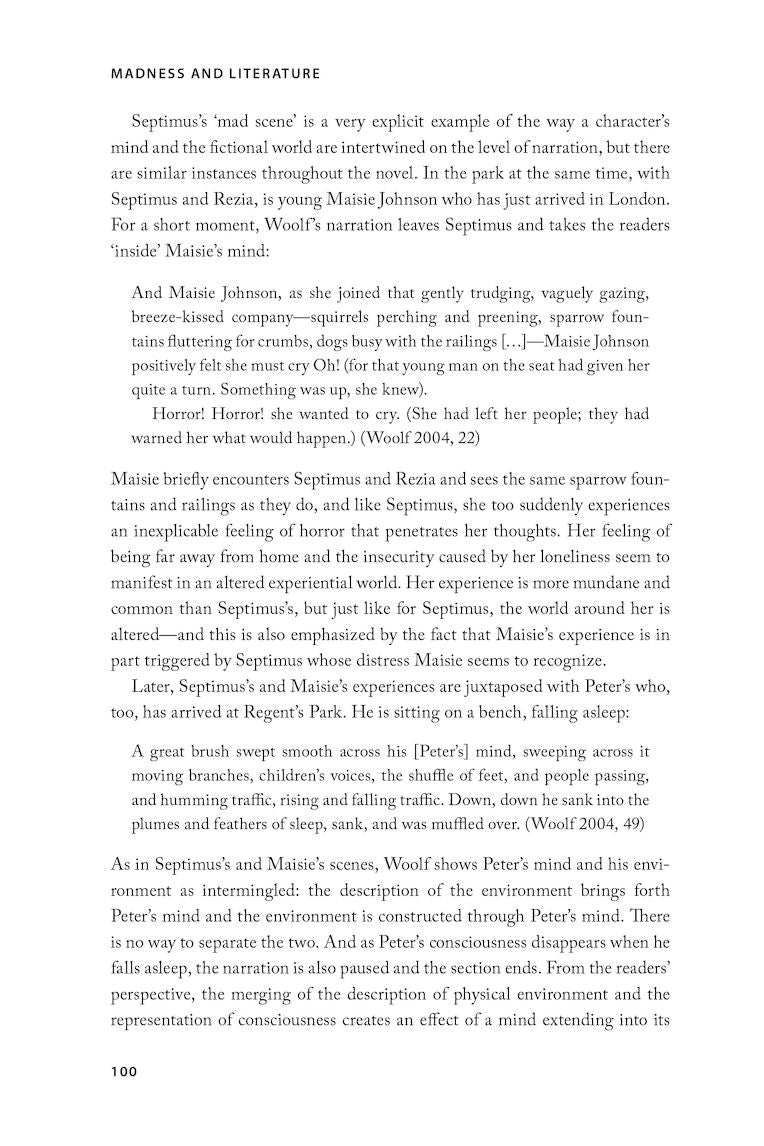
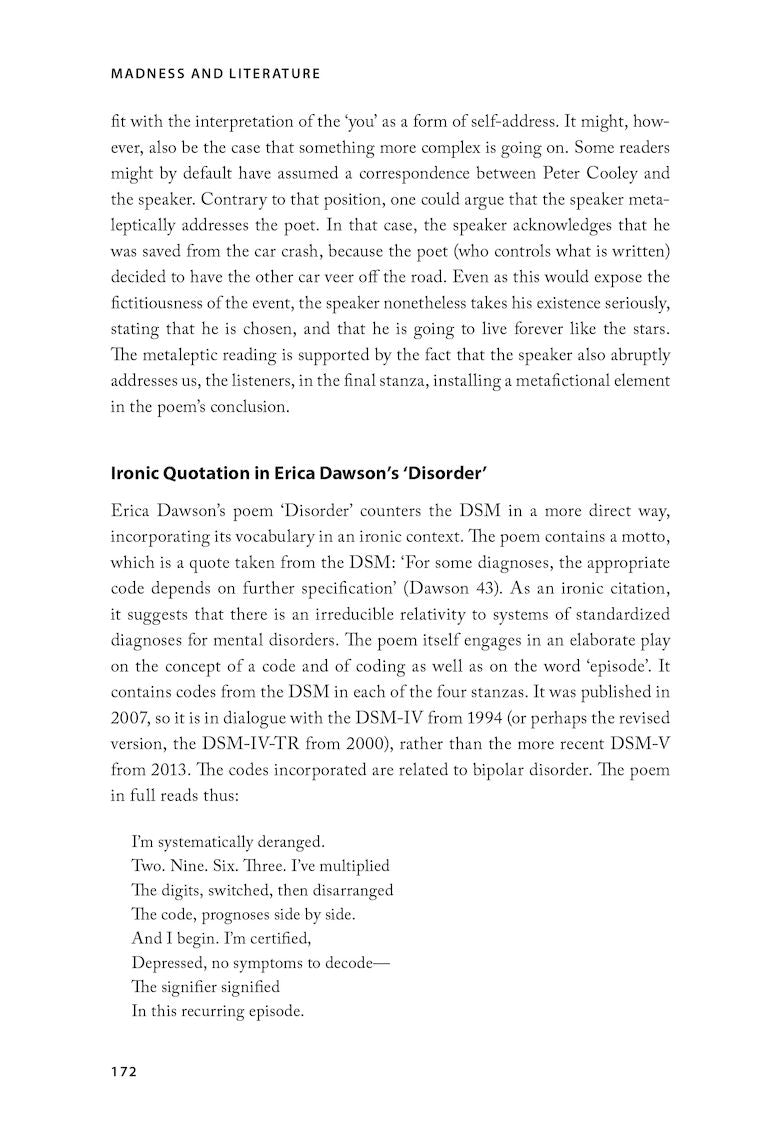
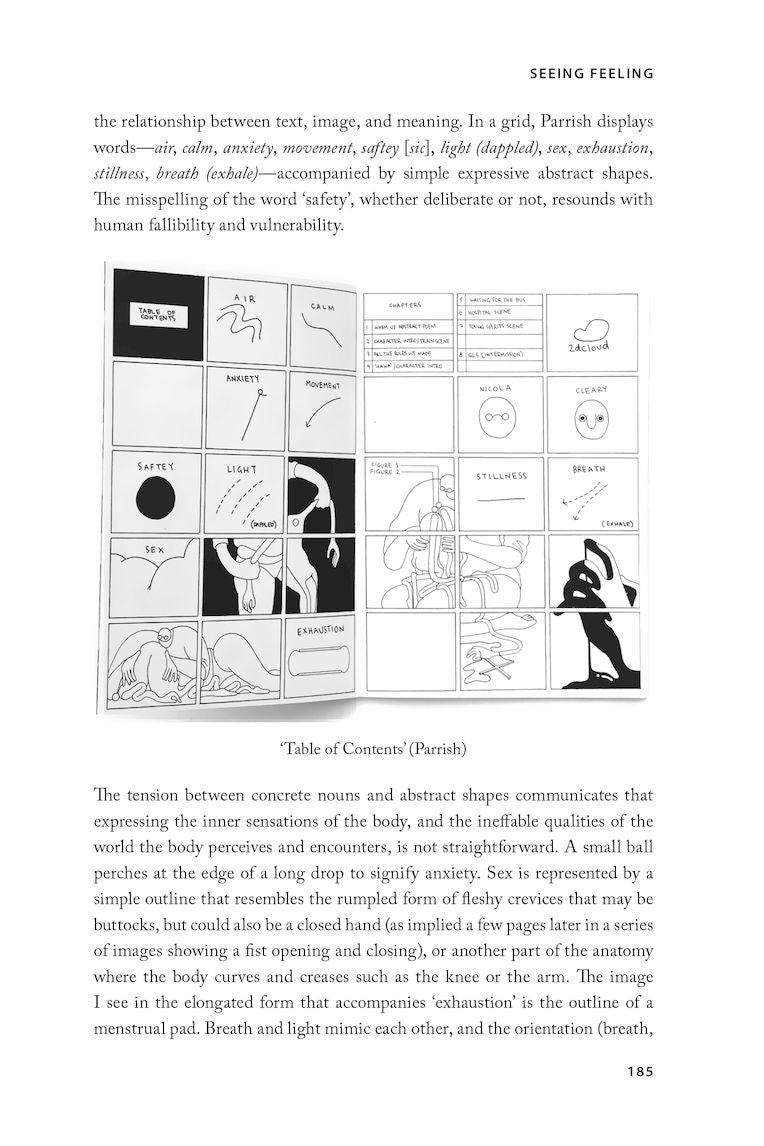
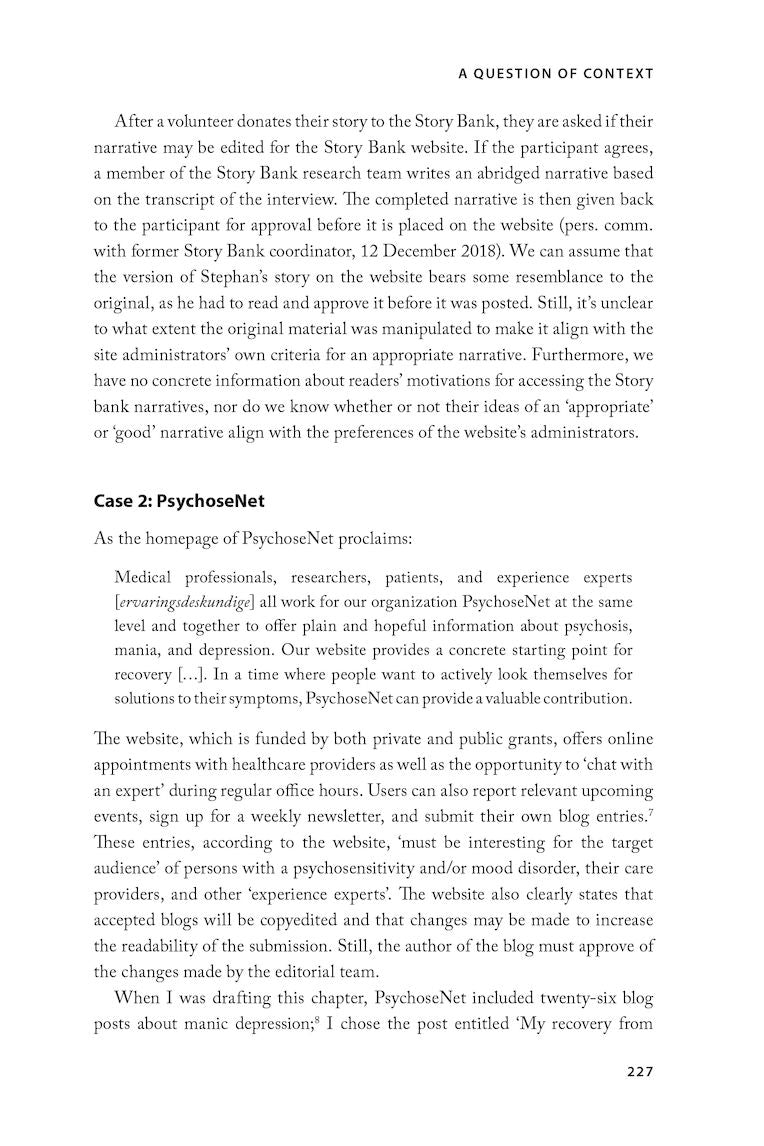
- 302 Pages
Mental illness has been a favourite topic for authors throughout the history of literature, while psychologists and psychiatrists such as Sigmund Freud and Karl Jaspers have in turn been interested in and influenced by literature. Pioneers within philosophy, psychiatry and literature share the endeavour to explore and explain the human mind and behaviour, including what a society deems as being outside perceived normality.
Using a theoretical approach that is eclectic and transdisciplinary, this volume engages with literature’s multifarious ways of probing minds and bodies in a state of mental ill health. The cases and the theory are in dialogue with a clinical approach, addressing issues and diagnoses such as trauma, psychosis, bipolar disorder, eating disorders, self-harm, hoarding disorder, PTSD and Digital Sexual Assault.
The chapters in Part I address literary representations of madness with a historical awareness, outlining the socio-political potentials of madness literature. Part II investigates how representations of mental illness in literature can offer unique insights into the subjective experience of alternative states of mind. Part III reflects on how literary cases can be applied to help inform mental health education, how they can be used therapeutically and how they are giving credence to new diagnoses. Throughout the book, the contributors consider how the language and discourses of literature—both stylistically and theoretically—can teach us something new about what it means to be mentally unwell.
There’s news here that moves us to reconsider not only what literature can teach us, but how it can teach us, and even be of service to people living with mental illness and those who treat and care for them. Here’s a lively and far-reaching contribution to the field of medical humanities.
Maura Spiegel, Division of Narrative Medicine, Columbia University
A wonderful array of critical and reflective accounts about literature representing mental illness in keeping with a health humanities approach that values interdisciplinary, inclusive and potentially applicable knowledge.
Paul Crawford, Professor of Health Humanities, University of Nottingham
An indispensable contribution to the study of literature and madness, the health humanities, and medical humanities. The diverse work in this volume situates the complex and different experiences of literary madness, allowing us to negotiate new definitions of mental illness and its metaphors, dialogue, and plot lines in narrative theory. A must for scholars and students of literature interested in the depiction of mental health in literature.
Shahd Alshammari, Assistant Professor of English, Gulf University for Science & Technology
What a wonderful goal, to put literature and psychopathology in dialogue, and I can testify as a psychopathologist, to the extraordinary and enriching achievement of that goal. I have prospered from my engagement with the many complex and enlightening ideas in this book. I cannot recommend this book enough.
Femi Oyebode, Theory & Psychology
Madness and Literature adds new and important insights to an ongoing conversation. A particular accomplishment of the collection is that it does not only talk interdisciplinary talk but also walks the walk... a rich and thought-provoking volume.
Christina Slopek, Storyworlds
Grammelgaard’s assertion that the volume fosters a purposeful dialogue between literary and medicalised understandings of mental illness is convincing. The book is an important contribution that can aid students and scholars in psychiatry in their endeavors to understand mental illness as a meaningful experience.
Martin Guha and Dyuti Gupta
Journal of Mental Health
Introduction: Madness and Literature and the Health Humanities Lasse Raaby Gammelgaard
DOI: 10.47788/AFZH5419
Part I: Literary History and Socio-Political Perspectives
1. Layla and Majnun in Historical and Contemporary Conceptions of Madness in Islamic Psychology Alan Weber
DOI: 10.47788/RRMJ3362
2. The Anti-Psychiatry Ethos in Samuel Beckett’s Murphy Shoshana Benjamin
DOI: 10.47788/YEGJ4716
3. Apartheid’s Garden: Dismantling Madness in J.M. Coetzee’s Life & Times of Michael K Sebastian C. Galbo
DOI: 10.47788/TJNQ3925
4. Sniffs and Dribblers: Poppy Shakespeare and the Identities of Madness Clare Allan
DOI: 10.47788/SEHO5518
Part II: Literary Theory and Experiencing Mental Illness
5. Reading Shattering Minds and Extended Selves in Virginia Woolf’s Mrs Dalloway Anna Ovaska
DOI: 10.47788/KVCT9727
6. Spill the Words: Speechlessness and Creativity in the Writing of Janet Frame Mary Elene Wood
DOI: 10.47788/ZEIP9285
7. Pronominal Shifts and the Confusion of Self with Not-Self Alice Hervé
DOI: 10.47788/KQGN8180
8. Rethinking Clinical and Critical Perspectives on Psychosis in Kathy Acker’s Writing Charley Baker
DOI: 10.47788/KIQF3977
9. Countering the DSM in Poetry about Bipolar Disorder Lasse Raaby Gammelgaard
DOI: 10.47788/GRFK1241
10. Seeing Feeling: Dissociation and Post-Traumatic Memory in the Graphic Novel Perfect Hair Penni Russon
DOI: 10.47788/WKFD8677
Part III: Literary Instrumentality and Clinical Psychopathology
11. Writing Therapy, Writing Data: Therapeutic Writing as a Methodological and Ethical Approach in Researching Digital Sexual Assault Signe Uldbjerg
DOI: 10.47788/SWBN2997
12. A Question of Context: Sites for Cultural Negotiation in Narratives of Manic Depression Megan Milota
DOI: 10.47788/LTVE5090
13. Conscripting Dante: History, Anachronism, and the Uses of Literary Precedents in the ‘New’ Diagnosis of Hoarding Disorder David Orr
DOI: 10.47788/QYGF1330
14. Opening Up the Discourse of Male Eating Disorders: Personal Experience in German and English Narratives Heike Bartel
DOI: 10.47788/FCMM5517
Afterword Lasse Raaby Gammelgaard
DOI: 10.47788/IXUD7033
Notes
Index
- 302 Pages







